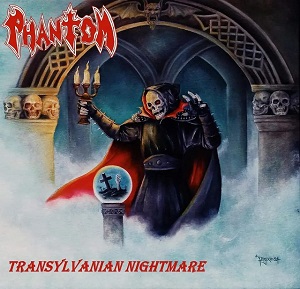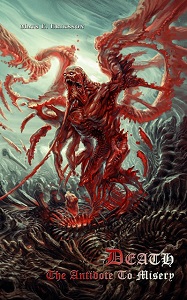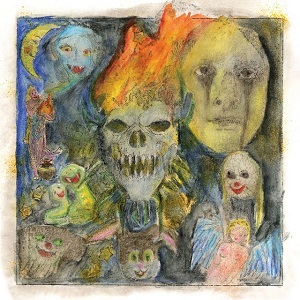METALLICA Visit The Headbanger’s Couch, James And Lars Speak
July 8, 2004, 19 years ago
David Fear of The San Francisco Bay Guardian (www.sfbayguardian.com) has issued the following report on METALLICA:
Let’s say, for argument's sake, that you, the reader, have never visited a psychoanalyst, participated in any type of group therapy, or even considered answering the question "And how does that make you feel?" Chances are good that thanks to the antiquated social stigmas and popular media representations of the professional mental health industry, the phrase alone – "therapy" – still brings up a clear, classic image in your mind's eye: a bespectacled man or woman sitting with one leg crossed over the other, jotting down random observations on a legal pad as a patient, lying prone on a black leather couch, spills his or her guts, tissue at the ready.
Now keep that picture in your frontal lobe for a second. This proverbial patient... do they look like a member of Metallica?
Before you answer that one, pick up the Bay Area thrash pioneers' last album, St. Anger, and take a gander at the lyrics. Their usual high-concept metal odes to the biblical plagues, leper messiahs, and things that shouldn't be are replaced by the title track's mantra "And I want / My anger to be healthy / And I want / My anger just for me / And I need my anger not to control." Another song's chorus repeatedly asks, "Am I who I think I am?" A better question might be: are they who any of us think they are?
When St. Anger hit the shelves in 2003, some fans were a little taken aback by the more introspective turn the band had taken (opinions from the diehards on the Encyclopedia Metallica message boards were mixed, ranging from benign admiration to "It's fucking shit!"). For most other folks who'd never think to pay attention to the group or throw up their hands in a devil-horned salute, however, it was a sign that something deeper and richer was going on within. The music still comes flying in at neck-breaking tempos, but the messages in these metal bottles are all about the long, hard road of looking inward. How did they go from "Search and Destroy" to self-examination?
The answer lies in Joe Berlinger and Bruce Sinofsky's brilliant new documentary, Metallica: Some Kind of Monster. Not just in its chronicling of the band's confrontation with their inner demons, its notation of lead singer James Hetfield's check-in to rehab, its candid view of their emotion-airing sessions – it's in the making of the film itself. Having a camera on the premises kept the he-men hesher deities with the fret-melting, falsetto-register solos honest as they started seeing a group therapist prior to recording. Had they not, there not only wouldn't have been a new CD – there also wouldn't have been any more Metallica. And unlike your typical Behind the Music tour of tragedies and triumphs, this rockumentary isn't afraid to show shit getting real ugly as the musicians go from Damaged, Inc., to a group that can finally work out their problems in a proactive manner.
But the warts aren't what make this two-and-a-half-hour peek into the juggernaut such a compelling, even moving, piece of work. Any vérité rock doc can do voyeurism, but how many actually show the lifestyle's aftermath; unflinchingly detail how fucked-up, flawed, and unforgiving the subjects can be; or aid the process of licking the collective wounds? The film's jaw-dropping brilliance lies in the fact that it offers a front-row seat to look into the belly of a wounded beast while letting the cameras both converge with and record the need to finally let it all out. Or as drummer Lars Ulrich told me over the phone from their tour stop in Spain last month, "It's not even about a rock band, or the making of a CD.... To me, it's about friendship and talking to people so they know what's going on in your head ... not being afraid to let folks who you love know who you really fucking are."
The healing, headbangers, has already begun.
It all started with two phone calls.
Phil Towle isn't a therapist per se, but after 30 years of doing clinical psychiatric social work, he's learned how to recognize when someone is having a hard time communicating. "Several years back, I started to become more interested in helping people succeed rather than just survive crises," he told me. "That's why I began to gravitate towards 'performance coaching.' " It may sound a tad too Tony Robbins-ish for some, but after Q Prime Management saw what Towle had attempted to do for Rage Against the Machine, it thought he might be the man to help get Metallica back on track. "When I was asked to step in, they really weren't talking to each other. Look at what they accomplished together ... yet they had no way of expressing that to one another. That was the barrier we needed to break down." At the first session, in January 2001, however, a bomb was dropped as Towle was introducing himself: bassist Jason Newsted announced he was officially quitting the band. This was, oddly enough, when Berlinger and Sinofsky got their call.
"We knew them from Paradise Lost," Berlinger and Sinofsky's 1996 documentary on the unfair conviction of three teenagers for child murders, "when we wanted to use one of their songs for the movie," Berlinger said when I spoke with him last January at the Sundance Film Festival. "We thought there was no way in hell they'd ever heard of us or would let a small film like ours license their music. But we thought, 'Fuck it, we'll fax them a request anyway.' Literally an hour after we sent it, we get this effusive note back from their manager, saying, 'The band loves your movie Brother's Keeper!' And they let us have their music for free! It was fascinating to us, this disconnect between their image as long-haired rock stars and the nice, professional guys who watched under-the-radar documentaries."Having established a relationship with Metallica, the duo had been pitching a project covering the band for a while, with the band and their management intrigued by the idea but, sans anything to promote, somewhat noncommittal. "We'd always wanted to do something deeper ... they always wanted something more clip-driven," Sinofsky added. "They weren't ready to pull back the curtain." Then, during a call to Q Prime headquarters, Ulrich got on the line. "He said, 'Hey, Jason is leaving the band, we're all seeing a therapist, we're gonna be recording ... why don't you guys come out and start filming?' " The initial idea was to shoot them working on the album for a few months.
Berlinger shook his head at the recollection. "I still have no idea why they let us do it."
"The fact that they called us in during the toughest creative period of their careers," Sinofsky added, "and what would end up being the most difficult period for the band personally – though we didn't know that yet – it said a lot. Though none of us knew what was in store."So the duo headed off to San Francisco, where Metallica was holed up in the Presidio trying to write their first batch of original work in five years. Filming commenced in the spring of '01, just as the recording sessions with longtime producer (and stand-in bassist) Bob Rock were tentatively getting under way and the band seemed to be approaching what's known in the therapy world as "a breakthrough."
Then things got real bad.
"You have to understand that James Hetfield was someone who had been searching for a family system all his life," Towle explained when asked about the singer's state of mind prior to going through his recovery phase. "And even before he started his own family, he'd found it in this band. He was afraid, however, that unless he squeezed that system tight, it would go away. The old James ruled by fear." Anyone doubting that claim need only see a brief clip of the boys during their "Black Album" phase, in which the man with the pit bull scowl and the meanest-looking muttonchops in rock history responds to a request with pure intimidation. "You want to hear lyrics on this take?" he growls. "Then sing 'em yourself!"The cameras were on when an argument between the two reigning egos of Metallica – Hetfield and cofounder Ulrich – began over whether a riff sounds "stock." The garrulousness turns into goading until Hetfield storms out of the session, slamming the door behind him. It's the last anyone sees of him ... for six months. Production on the record grinds to a halt, the makeshift studio shuts down, and everyone is left twiddling their thumbs.
"We had no idea that when we filmed him walking out, that may well have been it," Berlinger admitted. "How do you plan for something like that?" The next thing the band heard was that Hetfield had checked himself into an undisclosed rehabilitation center for unnamed addictions; direct communication between him and everybody in the inner circle pretty much remained static after that. Berlinger and Sinofsky kept filming as Towle continued to see lead guitarist Kirk Hammett, Ulrich, and Rock on a daily basis, though the future of all projects – including the 20-year existence of the group – remained in doubt. "I mean, how do you have an album or a film," Ulrich asked rhetorically, "when there is no fucking band?"This, perversely, is just where things get interesting and where Some Kind of Monster morphs into something far beyond a making-of promo piece (eventually Metallica bought the film back from Elektra Records, which had commissioned it). After all, Metallica had cultivated a larger-than-life image of folks who rocked and lived louder, faster, and harder than anyone else. All that mining of darkness – making aggressive music for aggressive people – may have reaped them riches and rewards, but as countless fallen creative folks have proved, it's a legacy that often courts burnout, followed by the fade-away. It was only a matter of time before the rage that fuels a lot of heavy music (the band's legendary penchant for using party as a verb earned them the nickname "Alcoholica") threatened to consume them whole. People expect you to be those Jägermeister-soaked gods offstage as well, and the toll often means perpetual adolescence at best and total meltdown at worst.
But once Hetfield leaves of his own accord to deal with his health – an act of responsibility one usually doesn't associate with the hedonistic lifestyle fans often demand of their rock stars – the remaining members let the cameras become a sort of second therapist. All defenses go down, and the real all-access pass begins – leading to am-I-actually-seeing-this? scenes like Ulrich dealing with his father (and father issues) as he attempts to garner approval from his druidlike dad, a long-awaited sit-down with ousted former guitarist Dave Mustaine (more on that in a bit), and after a kinder, gentler Hetfield returns, the film's most discussed moment: Ulrich primal-screaming two decades' worth of pent-up frustration into one "Fuck!!!" delivered six inches from Hetfield's face.
"The old me probably would have thrown Lars into the refrigerator when he did that," Hetfield said when reminded of the one-sided screaming match in question. "But I realized that, when I took off to deal with my own shit, something Lars has invested his life into had been taken out of his hands. He had a lot of fear over that ... and he had a lot of anger directed at me, instead of the situation. I set a boundary for myself to not lash out at him, because I understood where that came from. I knew he had to do that." A pause. "I also knew that he'd been on the receiving end of something very similar during my absence as well."Hetfield is referring to the second-most talked-about sequence, when Mustaine joins Ulrich for a one-on-one therapy session. An early member of the band, Mustaine was kicked out for patterns of consumption that even Metallica felt were excessive. He went on to form the equally influential Megadeth, but his talk of feeling inferior and experiencing failure as Metallica's success grew exponentially betrays years of wounds beneath the hardened surface.
"When I saw that footage, I really wished I'd been there," Hetfield admitted. "There was a part of me that wanted to protect Lars from being attacked like that. I think Lars took responsibility for more than he had to – it wasn't just his burden to bear. I also wish that I could have helped translate some of the stuff Dave was saying, since as another person who is going through recovery, I knew where he was coming from too. I mean, we were 19 at the time. We didn't know about A.A.! We were on our own path to hell! But I'm really glad Dave came up to do that. I respect that a lot.""What do I feel when I see that footage?" Ulrich mused. "I feel sad for him ... not in a condescending way. Just sad that he feels what he's accomplished has been less than what we've done. I mean, he's made albums that I personally consider to be two or three of the best metal albums ever – I still listen to them! I'm surprised that he doesn't think he's a success. But hey, he's dealing with his stuff, just like we're dealing with our issues. I think that took guts."
When I asked him if it took more guts to do that than to let cameras film the band's therapy sessions all the time, Ulrich paused, then gave an unexpected answer. "The cameras were like a truth serum. Had we not had those around, we probably wouldn't have been as honest with each other. We would have reverted back to our old defenses and bullshit. But cameras can sense when you're lying, so when they were on, we had to tell each other the truth." He paused again. "They probably saved the band just as much as anything else."
"We showed a finished cut to Jim Jarmusch, to get some advice on foreign distribution," Berlinger said. "And he phoned us back, saying, 'This is great, but when are you going to show this to the band? They aren't going to let you release this.' And we told him we already had and they loved it. He was flabbergasted!"Once the filmmakers had culled two and a half years of footage down to a rough cut, they screened it for the band with the caveat that whatever they wanted excised would come out. "We weren't sure there'd be much left in," Sinofsky joked. Instead, apart from a few minor notes, the band didn't ask for any cuts. "We had given them tapes of the film to watch again in case they wanted to give us additional feedback," Berlinger chimed in, "and James just pushed it back, saying, 'I don't need to see it again. You guys did what you said you were going to do, and you made something honest and true. I don't need any changes.' "
Even with the band's mantra for the project ("Is it true and honest?"), it's a little shocking to see what was deemed fit, P.R.-wise, to be left in: Ulrich selling his modern art collection at Christie's, the band in plenty of emotionally raw states, an attempt to record a cheesy radio promo that turns into comedy (Ulrich and Hetfield cite that as their favorite scene) and then incredulity as their management admits a certain unnamed corporation won't play their records unless they scratch its back ("So they won't stab mine?" Hetfield asks; the same question later ends up in a song). Are they ready to show the world their true faces?
"You want to act like you don't give a fuck what people think, but of course you give a fuck!" Ulrich said with a laugh. "I'm a human being. I care what people think of me even if I act like I don't. That whole Napster thing ... man, I wished we'd done it differently and had more information on stuff before we went out on a limb with it. I recognize there's a part of me that has this kindergarten-playground mentality, that likes to stir shit up. But as I get older, I realize that doesn't make me a bad person. The therapy helped a lot with that too." What about the contradictions of a member of a working-class person's rock band selling art? "Hey, that's who we are. Most people aren't just one thing anyway. What am I going to do, take it out of the movie? That's the real me.""Well, the first time I saw this, I did think, 'Are we really sure we want to put this out?' " Hetfield said with a laugh. "There's some personal shit in there, y'know, stuff I see on-screen and think is just too embarrassing or intimate for others to see, but right now, that's kind of what I need in my life to keep myself humble and real."
Talking to Hetfield over the phone, what's most surprising at first is how warm and giving he now is in conversation. Considering his entire persona had been built around a very prototypically metal tough-guy image that was equal parts stoicism and lurking danger, the genuinely nice person on the other end of the line is startling even if you've seen the monumental change he goes through over the course of the film. He embodied the live-fast ethos of a rock star to a T, and it almost destroyed him. When he finally gets his shit together, he's not sure he can go out and tour. When he actually takes the stage at the end of the film, it somehow feels like an underdog's victory.
"I'm really ready to blow that whole macho bullshit image thing out of the water," Hetfield said. "When I'm onstage and I'm playing the music that we play, this, well, character, I guess, comes out of me. That guy started to take me over a bit – it was ridiculous. People do expect you to be 'that dude from Metallica' all the time. You can't live like that. And ironically, now that I've put that person behind me a bit, I feel more like a man than ever before."Consider for a second that metal and its more brutal subgenres (speed metal, death metal, black metal, thrash) often tend to serve as an outlet for personal dysfunction. The notion that the same sense of outcast anger is the primary currency between the bands and the audience would suggest that a "healthier" Metallica would fail to connect with either the confines of the genre or their fans. The process of getting their personal shit together is evident in their product now, which still resonated with most people: the album went to number one on the charts, it still sold in the millions, their tours still sell out arenas. But do people really want to see their heroes get dismantled and reassembled this way?
"I hope the fans get out of this what they need to," said Hetfield, turning very serious. "Everyone goes through some bad shit, including us. It's a little scary opening up to this extent and then putting it out for everybody to see, but to me, it was like another part of my recovery, y'know. Letting some people in.""It's a valid question," Berlinger admitted. "But we'll tell you a story. We showed the film to a group of hardcore fans in New York, to gauge their reaction. Afterwards, this one beefy, tattooed guy who looked as if he'd lived several lives stood up, saying how he loved the band and he'd had a drinking problem but he was trying to do right by his family now. If James Hetfield could confront those same problems and put this out there for everybody to see ... he was just flush with admiration for him. Later, I told James about it, and you could see him getting a lump in his throat. 'Man, if I could reach one guy like that, all this crap I went through was worth it.' "
In the end, as with most therapy, the goal of Some Kind of Monster is to try and shed light on what was hidden and in need of help. That's not to suggest it's a condemnation of banging your head or even an advertisement for shrinking it, nor is it a self-serving promo for the band. Its currency lies more in the fact that it demolishes both the band's persona and a culture most people think can only thrive on self-destruction. By removing the stigma of therapy – by showing that even hardcore dudes like these guys could benefit from sharing their feelings – it even offers a way out from bottoming out.
"All we wanted was to try and capture something truthful," Hetfield said. "And this is as raw as it gets. I'd like the fans to get to know us a little better with this. The more people who see who I really am, the more I can live comfortably in this world. It was a leap of faith, but I think it worked. We all needed to do this."Ulrich concurred and took it one step further. "We wouldn't be a band if it weren't for this. The therapy and the film – it literally saved us. I'm not exaggerating. I'm so proud of the film and even prouder we had the balls to see this through. I think we're better people for it."











